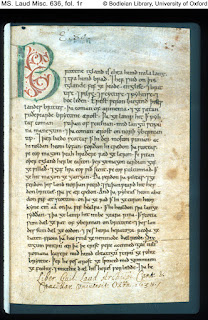In stature she was very tall, in appearance most terrifying, in the glance of her eye most fierce, and her voice was harsh; a great mass of the tawniest hair fell to her hips; around her neck was a large golden necklace; and she wore a tunic of divers colours over which a thick mantle was fastened with a brooch. This was her invariable attire.
This description was by Roman historian Cassius Dio, writing a century after her death. He called her Buduica, his Latin version of the Brittonic name by which she is known now, Boudica. (The second 'c' often found in her name was a typo added by Tacitus.) That was probably not her real name, however, given that Common Brittonic (the British Celtic language used by the inhabitants before Roman and Viking invasions started adding new words) includes the feminine boudīkā, "victorious." What we know her by was likely a title given to her, in which case we have no idea what her birth name was.
Boudica was a queen of the Iceni tribe, wife of Prasutagus. The statue shown here includes their two daughters. The Iceni inhabited the area now known as Norfolk in the 1st century CE. Under the Romans (Claudius' forces had conquered Britain in 43), Prasutagus was allowed to be king, so long as he named Caesar his co-heir along with Prasutagus' two daughters. Rome also achieved local support by making loans of money and real estate to influential Britons.
When Prasutagus died before 60 CE, his will was not honored. Romans claimed the kingdom, loans and real estate were confiscated, Boudica and her daughters were beaten and raped. Cassius Dio says that the philosopher Seneca had made loans to some Britons, and called them in.
The stage was set for an uprising of the Iceni against the Romans, and Boudica was ready for it. Their initial success was sufficient to prompt the current emperor, Nero, to consider abandoning Britain altogether. That became unnecessary as the war went on.
Details to come.


